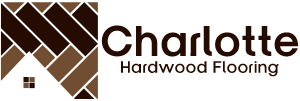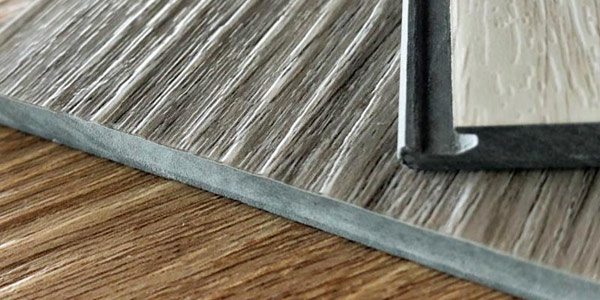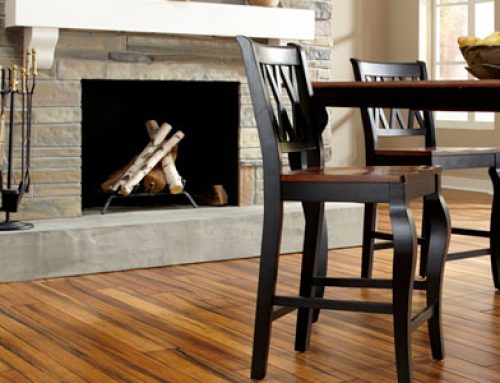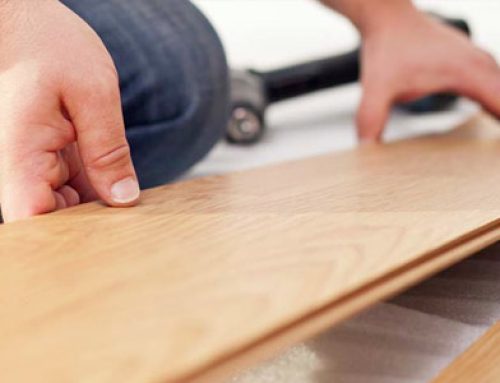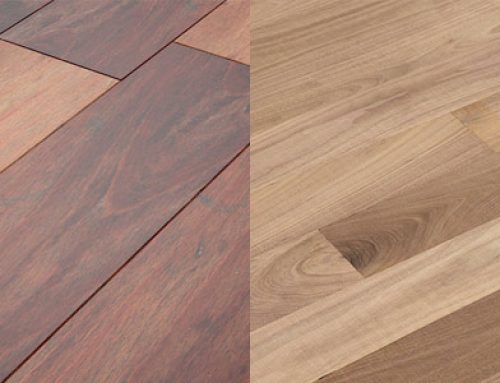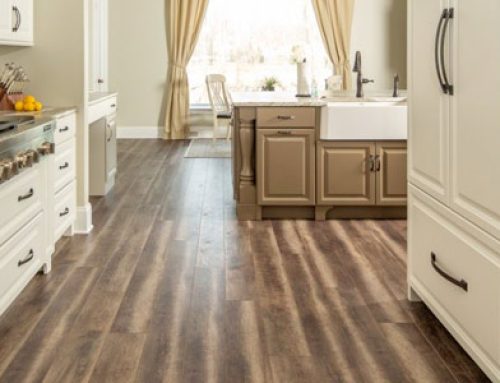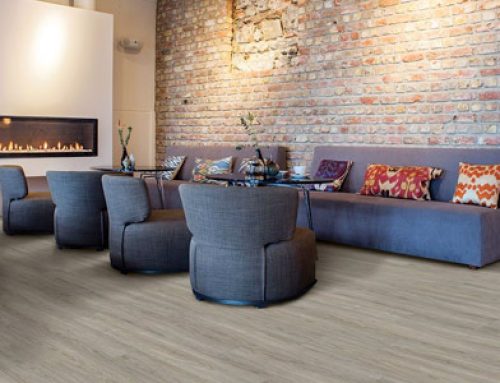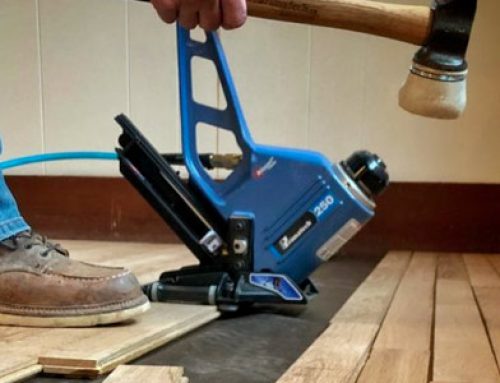Charlotte Hardwood Floor Specialist is a premier flooring company in Charlotte that installs all types of flooring products including vinyl floors and laminate floors. Below we explain the difference between those two types of flooring while pointing out the benefits of each one. Once you’ve made a decision on the type of floors you want for your home, Charlotte Hardwood Floor Specialist would be happy to provide you with a free estimate to install them. We can also procure materials on your behalf for a discounted price.
At first look, it’s quite difficult to differentiate between vinyl and laminate flooring. Both look and feel like wood, stone or ceramic. Both are rigid and interlocking like solid hardwood floors. And both seem to be easy to take care for and durable. The difference between those two flooring products becomes evident when we look at the manner in which they are constructed.
VINYL FLOORING
Vinyl flooring is a popular type of flooring product. The highest quality vinyl flooring usually comes in plank (LVP) and tile (LVT) shapes that are interlocking (much like hardwood floor planks). They are made of 100% plastic polymers and constructed of at least 4 layers. 95% of vinyl planks and tiles today have a backing that is made of either a cork or a synthetic material to increase comfort and noise absorption, hence eliminating the need for an underlayment.
The second layer is a rigid core that is made of either a stone or wood polymer. A stone polymer core increases the strength of the planks making them more resistant to denting than planks constructed with a wood polymer core.
The third layer is a film layer onto which a wood, tile or stone patterns has been printed and embossed for a more realistic look and finish. Embossing printed patterns like wood grains and nots adds depth and texture to the vinyl planks. That feature is available in high end LVP and LVT.
The final layer, called the wear layer, has different ratings depending on the brand you choose. With a thickness ranging from 6 to 20 mil, the wear layer is made to provide protection and durability to the planks / tiles. The thicker the layer, the more durable the vinyl flooring and the more resistant it will be scratching, foot traffic, dents and UV rays.
LAMINATE FLOORING
The first laminate flooring products were developed and introduced to the market in the 1970s as a cheaper alternative to solid wood flooring. The design and construction of laminate flooring have come a long way since then. Similar to vinyl flooring products, this type of material is made up of several layers including an inner core board, which is made of wood byproducts bonded together with resin, a decorative layer with printed a photographic image of wood, stone or ceramic which can is embossed for a more realistic finish, and a wear layer to protect the flooring. Laminate flooring looks the most like wood, stone and ceramic floors as compared to vinyl flooring.
Laminate floors are a popular among homeowners, especially since they look so much like solid wood floors. They are also one of the most economical flooring option available, but before you take the leap and invest in laminate flooring, you should first determine if it is the right type of flooring for you.
VINYL FLOORING VERSUS LAMINATE FLOORING PERFORMANCE
INSTALLATION PROCESS
Laminate flooring uses a click and lock mechanism to join planks together and close the seams. This type of floor is installed “floating” over a subfloor without being physically attached to it with nails or glue. Rather, laminate floors are held in place by the walls or thresholds of a room. Vinyl floors can be installed to be floating with an interlocking mechanism or glued down to the subfloor. Laminate flooring has a wood byproduct core, whereas vinyl flooring is made of 100% plastic polymers. As a result, vinyl floors are best suited in rooms that can get wet or moist (kitchens, bathrooms, mud rooms, laundry rooms, sunrooms, etc…) while laminate flooring are best suited for dry spaces with limited temperature variations (bedrooms, living rooms, family rooms, etc…).
DURABILITY
Both vinyl and laminate flooring are durable products, but you will get more life out of vinyl flooring, 20 years or more, especially if you select higher quality grade LVP or LVT which are 100% waterproof. Both vinyl and laminate flooring have protective layers that are scratch resistant and hard enough to resist denting. Damaged vinyl planks or tiles can easily be replaced. Laminate flooring is durable, but vulnerable to water. Most quality laminate flooring can last between 10 to 25 years if you take care of them properly.
WATER AND MOISTURE RESISTANCE
The biggest difference between vinyl and laminate flooring is their resistance to water. Most luxury vinyl planks and tiles are 100% waterproof. Leaving a water spill on vinyl floors won’t affect them. That is not the case with laminate flooring. Laminate floors have limited moisture resistance because of their fiberboard core, which, if exposed to water or moisture, can swell up and soften causing irreparable damages to planks and tiles oftentimes causing the top layer to peel off.
CARE & MAINTENANCE
Vinyl floors are a lot easier to clean than laminate flooring, once again because their water resistance and low porosity. Whereas vinyl flooring can be cleaned with a mild, non abrasive soap and water, it will be more challenging with laminate flooring and require spot cleaning with a damp cloth which will need to be dried once cleaned.
If you live in the Charlotte area and are considering having vinyl or laminate floors installed in your home, we would love to hear from you and the opportunity to provide you with a quote to install your floors professionally.
